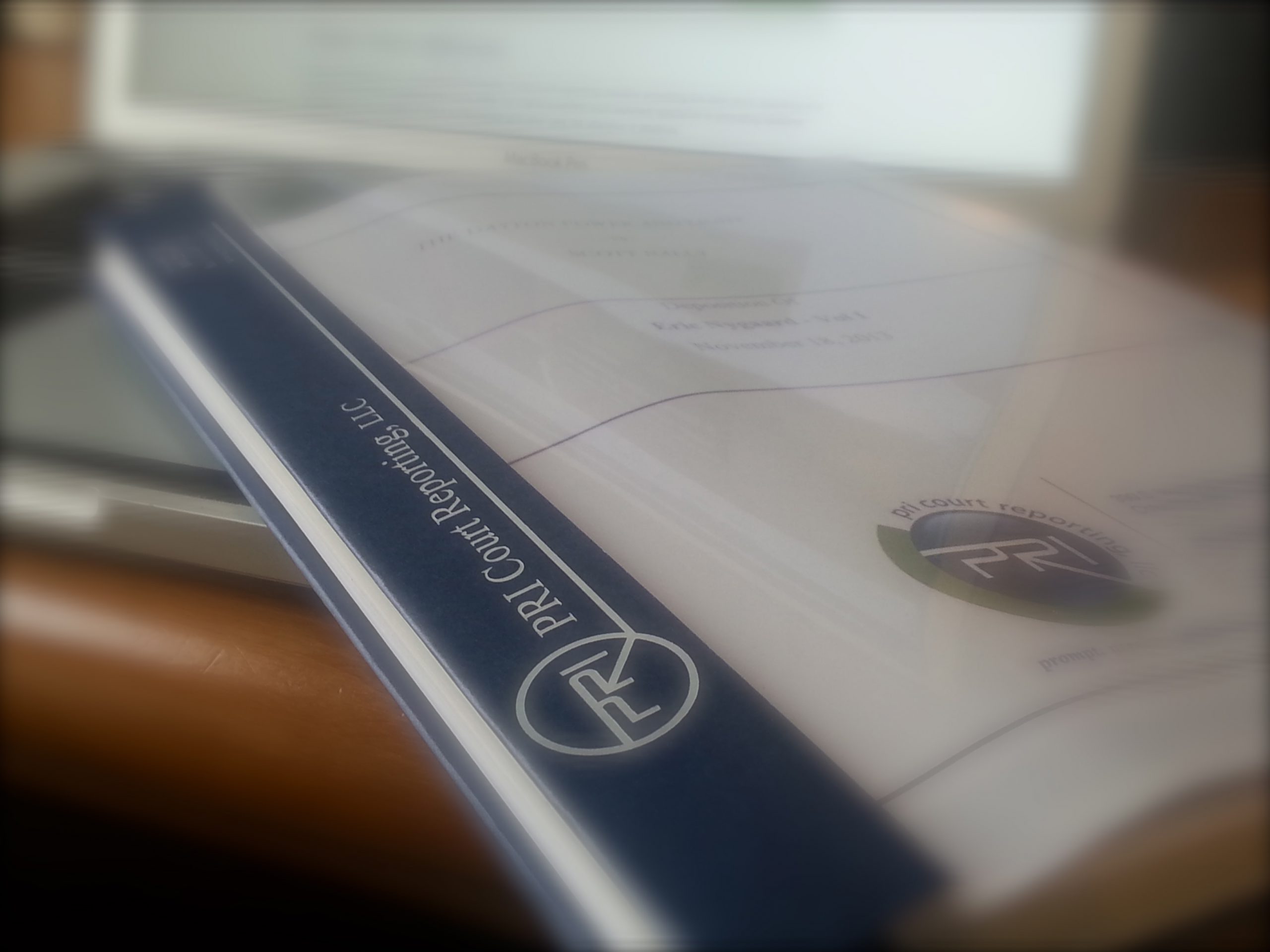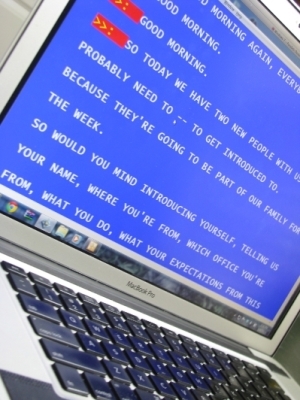
An Interview with Columbus Court Reporter – Christine Woodruff
PRI Court Reporting is lucky enough to have a very talented and friendly team of employees. Christine Woodruff is a court reporter in Columbus, Ohio, and she has been with PRI for over 13 years. Christine concentrates her work in the CART setting, but has deposition experience, also. Christine is very professional, friendly, and talented. You have probably met her at a deposition or CART job, so here’s a chance to get to know her a little better.
How long have you been a court reporter?
I have been a court reporter for 13 years.
How long have you been working at PRI Court Reporting?
I have worked for PRI all of my court reporting career.
Did you have other court reporting experience prior to joining PRI?
I did a short assignment as an intern at the Franklin County courthouse at the end of my schooling.
What do you like most about working at PRI?
I love the people I work with at PRI. I also like the variety of work that is available at PRI because it never gets old or boring. I am constantly learning new things and meeting new people.
Where are you from or where did you grow up?
I grew up in Grove City, Ohio. I went to a Catholic school through middle school, and then I graduated from Grove City High School. My parents grew up in Grove City, as well.
Before working as a court reporter, did you have another career or job? If so, what?
Before working for PRI, I had a few other jobs. The job I had immediately before PRI was as a safety coordinator for a wood manufacturing plant. I developed and taught safety trainings, helped develop and organize the plant’s safety program, and kept all the records for the plant that were required by OSHA. I also briefly held my Realtor’s license.
What is one thing you would like our clients to know about court reporting/depositions/CART?
The biggest thing I would tell our clients about court reporting is that court reporters are not as familiar with the case or the subject matter as they are, so any information you can share ahead of time will make the court reporter’s job easier. Specifically, things such as names of the parties involved and any technical or medical terms that will likely come up will be very helpful.
What is the most unusual deposition/CART situation you’ve found yourself in?
The most unusual place I have been in for my job is the conference room looking out at the “death house” at an Ohio correctional institution. Some of the interesting subjects that I have encountered are landscape architecture, nursing, engineering, disability studies, deaf history, fine arts, organic chemistry, physics, CAD, welding, Greek mythology, genetic engineering, physiology, child development, psychology, Asian philosophy, ASL, Six Sigma, ceramics, and many more. I have met very interesting and unusual people, too.
What’s on your iPod?
My favorite thing to listen to is talk radio or podcasts; however, I am a fan of most types of music including country, classical, musicals, rock, alternative, gospel, and Christian music.
What is one thing our clients don’t know about you?
I was a den mom for Boy Scouts and a leader for Girl Scouts.
What is your favorite Columbus restaurant?
I love The Cheesecake Factory!
What is your favorite app?
My favorite apps are Kindle and YouVersion, but I use Waze the most often.
What do you like to do when you’re not at work?
When I am not at work, I am usually with my children or playing with my grandson. I enjoy volunteering for anything that allows me to be involved in any way with my kids, which includes school events, sporting events, or even just being their personal taxi driver. I also enjoy playing tennis, volleyball, and other sports.
What is your best tip for balancing work/life/family?
Set priorities and stick with them, and use your time wisely.
We hope you’ve enjoyed learning a little more about Christine. Look for more interviews with other PRI Court Reporting staff in the future.






